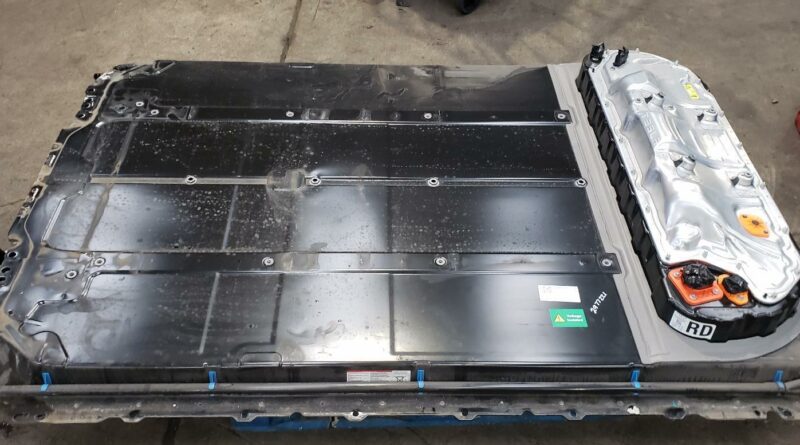Understanding the Cost of an Electric Vehicle’s Battery
What exactly is the cost of an Electric Vehicle’s battery? In this article, we delve into the intricacies of Electric Vehicle’s (ev) battery pricing, shedding light on the factors that influence it and its implications for the broader adoption of electric vehicles. In the dynamic landscape of automotive technology, the rise of electric vehicles (EVs) stands as a beacon of innovation, promising a cleaner, more sustainable future for transportation. Central to the allure of EVs is their advanced battery technology, which powers these vehicles with efficiency and eco-friendliness. However, as consumers weigh the benefits of going electric, one question looms large.
The Heart of the EV: Understanding EV Batteries
At the core of every electric vehicle lies its battery pack, a sophisticated assembly of lithium-ion cells that stores and delivers energy to power the vehicle’s electric motor. Unlike traditional gasoline-powered vehicles, which rely on combustion engines, EVs draw their propulsion from these advanced battery systems, making them inherently cleaner and more efficient.
Decoding the Cost of EV Batteries
The cost of an EV’s battery is a multifaceted consideration influenced by various factors:
- Battery Chemistry: The chemistry of the battery cells significantly impacts their cost. While lithium-ion remains the dominant choice for EV batteries, advancements in battery chemistry, such as solid-state batteries, could influence future pricing.
- Scale and Production Volume: Economies of scale play a crucial role in battery pricing. As production volumes increase and manufacturing processes become more efficient, the cost per kilowatt-hour (kWh) of battery capacity tends to decrease.
- Technological Advancements: Ongoing research and development in battery technology drive advancements that improve energy density, longevity, and cost-effectiveness. Breakthroughs in materials science and manufacturing techniques can lead to more affordable batteries over time.
- Raw Materials: The availability and cost of raw materials, such as lithium, cobalt, and nickel, impact battery prices. Fluctuations in commodity markets and geopolitical factors can influence the cost of sourcing these materials.
- Supply Chain Dynamics: The complexity of the battery supply chain, including sourcing raw materials, manufacturing components, and assembling battery packs, can affect overall costs. Disruptions or bottlenecks in the supply chain may impact pricing.
Here’s a simplified example of EV battery prices for various models found online:
- 2023 Cadillac Escalade IQ
- Battery Type: Nickel Cobalt Manganese Aluminum (NCMA)
- Battery Capacity: 200 kWh
- Total Cost of Vehicle: $130,000 (USD) / £94,752 (GBP) / €110,370 (EUR)
- Battery Price: Approximately $22,540 (USD) / £16,411 (GBP) / €19,122 (EUR)
- 2022 Rivian Amazon Delivery Van
- Battery Type: Nickel Cobalt Manganese (NCM)
- Battery Capacity: 100 kWh
- Total Cost of Vehicle: $90,490 (USD) / £65,946 (GBP) / €76,810 (EUR)
- Battery Price: Approximately $25,853 (USD) / £18,842 (GBP) / €21,938 (EUR)
- 2023 Ford Mustang Mach E Standard
- Battery Type: Lithium Iron Phosphate (LFP)
- Battery Capacity: 135 kWh
- Total Cost of Vehicle: $52,690 (USD) / £38,425 (GBP) / €44,759 (EUR)
- Battery Price: Approximately $13,298 (USD) / £9,681 (GBP) / €11,284 (EUR)
- 2023 VW ID.4 Standard
- Battery Type: Lithium Iron Phosphate (LFP)
- Battery Capacity: 70 kWh
- Total Cost of Vehicle: $43,179 (USD) / £31,471 (GBP) / €36,666 (EUR)
- Battery Price (Commercial): Approximately $6,895 (USD) / £5,027 (GBP) / €5,848 (EUR)
- Battery Price (CA): Approximately $8,730 (USD) / £6,364 (GBP) / €7,403 (EUR)
- 2022 Tesla Model S
- Battery Type: Nickel Cobalt Aluminum (NCA)
- Battery Capacity: Not specified
- Total Cost of Vehicle: £93.480
- Battery Price: Estimated between $5,000 to $20,000 (USD) / £3,644 to £14,576 (GBP) / €4,244 to €16,975 (EUR) for battery replacement
- 2023 GMC Hummer EV Edition 1
- Battery Type: Nickel Cobalt Manganese Aluminum (NCMA)
- Battery Capacity: 200 kWh
- Total Cost of Vehicle: Starting at $112,595 (USD) / £82,162 (GBP) / €95,607 (EUR)
- Battery Price: Approximately $22,540 (USD) / £16,431 (GBP) / €19,129 (EUR)
***Please note that these prices are approximate and may vary based on factors such as battery composition, capacity, and market conditions. Used EV batteries you can get with fraction of the price.
The Road Ahead: Implications for EV Adoption
Understanding the cost of EV batteries is essential for both consumers and industry stakeholders, as it shapes the affordability and accessibility of electric vehicles. While EV battery prices have declined significantly in recent years, further reductions are necessary to achieve cost parity with internal combustion engine vehicles and accelerate mass adoption.
In response to this challenge, concerted efforts are underway to drive down battery costs through technological innovation, increased production scale, and strategic investments in research and development. Initiatives such as gigafactories, which aim to ramp up battery production capacity, and collaborative ventures between automakers and battery manufacturers are poised to reshape the landscape of EV battery pricing.
Conclusion
The cost of an EV’s battery is a pivotal consideration in the transition to electric mobility. As technological advancements continue to drive down battery prices, the promise of affordable, sustainable transportation becomes increasingly attainable. By understanding the factors that influence EV battery costs and the implications for the broader automotive industry, stakeholders can chart a course towards a future powered by clean energy and innovation. How many owners car had.
Buying a used VW. Buying used vauxhall, BMW, Jaguar, Ford, Volvo, Range rover, Bentley, Aston Martin, Porsche, Ferrari, Lamborghini, Maserati, Hyundai, Tesla, Honda, Pagani

